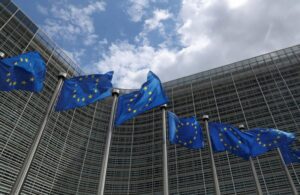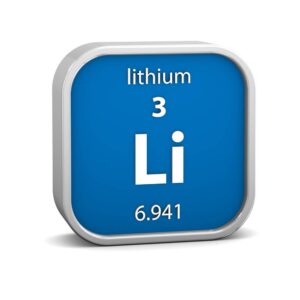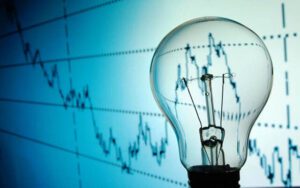
The ambassadors of the European Union have excluded Ukraine from the list of countries for which it is recommended to lift the restrictive measures imposed on unnecessary travel to the EU due to the COVID-19 pandemic.
This decision was made on Friday in Brussels, diplomatic sources reported to Interfax-Ukraine.
The official decision will be announced next week. It was adopted in connection with the increase in the incidence of coronavirus in Ukraine. The country was included in the list, which is reviewed every two weeks, on 15 July.
As previously reported, on 30 June 2020, the Council adopted a recommendation to gradually remove temporary restrictions on non-essential travel to the EU. This recommendation included an initial list of countries for which Member States can remove travel restrictions at external borders.
On May 20, the Council adopted a recommendation to amend in response to ongoing vaccination campaigns by introducing certain exemptions for vaccinated persons and relaxing the criteria for lifting restrictions for third countries. At the same time, the amendments take into account the possible risks associated with new options, establishing an emergency braking mechanism that allows to quickly respond to the emergence of a new option or deterioration of the situation in a third country.
The Council’s recommendation is not a legally binding document. The authorities of the member countries remain responsible for their implementation.

The Australian-based European Lithium (Perth), whose shares are listed on the Australian Stock Exchange, agreed to acquire Ukraine’s Petro-Consulting LLC (Kyiv), which is fighting for special permits for the production of two lithium deposits in Ukraine: Shevchenkivsky and the Dobry site.
“The condition for the acquisition is the issuance of appropriate special permits for the extraction and production of lithium to Petro-Consulting (in court, through public auctions or production sharing agreements), approval of the shareholders of European Lithium (as a result of which Millstone may acquire more than 20% of European Lithium) and some other conditions, with a final date of completion of 12 months from the date of signing,” the Australian company said.
According to the report, the total purchase price is AUD20 million in shares plus another AUD50 million in shares if certain conditions are met.
Following the completion of the acquisition of European Lithium, the main project of which today is the Wolfsberg lithium project in Carinthia, Austria, Lithium Project intends to conduct the first JORC mineral resource assessment based on verification work (double drilling).
“Considering the mutual synergy due to the merger of Ukrainian projects with the advanced lithium project Wolfsberg, Millstone (the owner of Petro-Consulting) is confident in issuing special permits to Petro-Consulting and financing further exploration work and feasibility studies of Ukrainian-based projects, Millstone agreed to invest AUD20 million in European Lithium, of which AUD2.5 million immediately, AUD2.5 million subject to shareholder approval (to be requested at the forthcoming AGM) and AUD15 million subject to completion of the Petro-Consulting acquisition,” the statement said.
It states that Millstone’s representative Mykhailo Zhernov will be appointed to the board of directors of European Lithium upon completion of the first tranche of the placement.
Petro-Consulting was registered in Darnytsky district of Kyiv in April 2010. The charter capital is UAH 340,210. The ultimate beneficiary of the company is resident of Donetsk Mykhailo Zhernov, the head of the company since September 2019 is Ihor Lukyanov.

Electricity consumption in Ukraine (net, excluding losses in power grids) in January-September 2021 amounted to 92.2 billion kWh, which is 6.9% more than in the same period in 2020 (86.2 billion kWh).
“The main reasons [for growth in consumption] are the absence in 2021 of strict quarantine measures to counter the spread of COVID-19, and as a result, an increase in consumption occurred all months, but most of all in March and April – by 11.6% and 12, 4%, respectively,” Ukrenergo said.
In addition, according to it, in July 2021, hotter weather was observed than in July 2020 (23.7° С versus 21.9° С), which led to an increase in consumption by 7.2%.
In general, over the nine months, all consumer groups increased energy consumption, except for agricultural enterprises, which reduced the volume of electricity used by 5.9%.
The largest increase in consumption was among the group of non-industrial consumers (small and medium-sized businesses) – by 18.1%, in construction – by 15% and transport – by 9.4%, due to the absence of strict quarantine restrictions.
In turn, the population increased the volume of electricity used by 5.6%, industry – by 6.7%.
In January-September 2021, energy consumption was increased by all industries, most of all – manufacturers of construction materials (by 17.1%) and machine builders (by 14.1%).
“In addition, it should be noted there was a significant increase in consumption by metallurgical, as well as chemical and petrochemical industries – by 6.5% and 7.1%, respectively,” Ukrenergo said.
According to the company, in the structure of electricity consumption for the nine months of 2021, there was a significant reduction in the share of the population – from 30.9% to 30.5% and a simultaneous increase in the group of non-industrial consumers – from 6.1% to 6.7%, which is also possible attributed to the lack of quarantine this year.
In addition, farmers reduced their share from 3.2% to 2.9%.
The rest of the consumer groups practically did not change their share.
Ukrainian banks’ cash exchange rates on 04/11/21

Source: Interfax-Ukraine

Some 48 regional hospitals will be built in Ukraine in 2022, some of them will be equipped with helipads, Deputy Head of the President’s Office Kyrylo Tymoshenko has said.
“Next year, 48 regional hospitals, both for children and adults, will be built. And most importantly, so that we, together with the Ministry of Internal Affairs, with the State Emergency Service, can help people – helicopter pads will be built in 29 of these hospitals, precisely in order to quickly deliver people to hospitals,” Tymoshenko said, speaking at the all-Ukrainian forum Ukraine 30. Secure Community on Thursday.
According to him, construction of the 201st admission department, as well as 600 outpatient clinics will be completed this year.
In addition, the state will equip medical institutions with computed tomography, ultrasound, X-rays and angiographs.

The competent authorities of Ukraine and Jordan have agreed on the form of a certificate for the export of milk and dairy products from Ukraine, Ukrainian Foreign Minister Dmytro Kuleba has said.
“This week we opened another market, namely, the export of Ukrainian milk to Jordan. The competent authorities of the two states agreed on the form of a certificate for the export of milk and dairy products from Ukraine. The concrete result of the joint work of diplomats and specialists of the State Service on Food Safety and Consumer Protection,” Kuleba said at an online briefing on Thursday.
He said that Ukrainian dairy products are of very high quality and therefore are in great demand abroad. According to Kuleba, this is the third certificate agreed between Ukraine and Jordan in 2021.
“The Ministry of Foreign Affairs continues to systematically open new foreign markets for Ukrainian exporters together with the State Service on Food Safety and Consumer Protection. Each new open market provides additional opportunities for Ukrainian companies, the strengthening of our national currency, the arrival of foreign currency to Ukraine, new jobs, taxes to the budget, the best salaries for our citizens,” he said.
The Foreign Minister said that not only exporting companies will benefit from the expansion of Ukrainian goods abroad, but every citizen of Ukraine involved in economic activity.